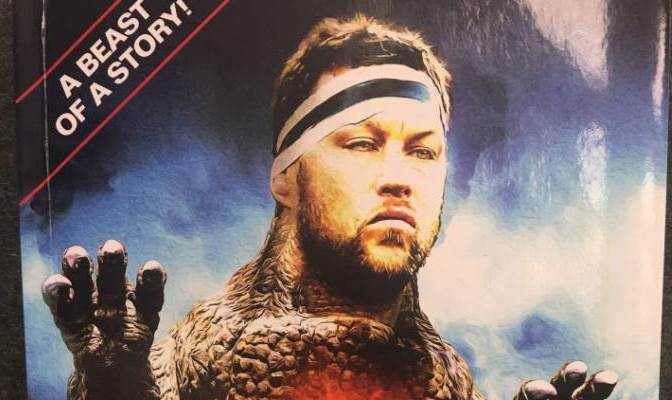Croczilla
0 Wyatt Crockett was always a different kind of rugby player. Probably his most famous moment was a tricky test against Italy. He was always thought of as a bit tall to be a prop, but his competitiveness meant he outdid expectations.
Wyatt Crockett was always a different kind of rugby player. Probably his most famous moment was a tricky test against Italy. He was always thought of as a bit tall to be a prop, but his competitiveness meant he outdid expectations.
He ended up being so integral to the multiple title winning Crusaders, permanent NPC champions Canterbury and to the All Blacks with 71 tests yet he was always a bit of an outsider.
Remember he was not from Christchurch; at first he was not one of them. He was, in his own words, from the eastern side of the north-western edge of the South Island.
His upbringing comes across as hippy heaven. His parents ran a camp ground nest to the Abel Tasman National Park, just up the road from Motueka, his mother had Dutch roots, a lot of the tourists were Dutch, and you get the picture.
From there he attended Nelson College; the birthplace of rugby in New Zealand. He was brought under the wing of John “Goody” Goodman and lapped up the many traditions of the school. There was the Hennie Muller fitness routine, and the runs up to the top of Centennial Hill; the geographical centre of the country (that wasn’t actually the centre of the country).
It all went well until his final year when he ruptured his spleen; the first of many unorthodox injuries, spent five nights in hospital recuperating before spending the rest of the year recovering properly. In addition to the set-back in his rugby progress it meant he missed most of the academic year, and ending up heading to Otago Boys’ for a year 14 school stint.
The strange injuries were to continue throughout his playing career; for example the medial collateral ligament when tackling Andy Ellis of all people
You can blame Carl Hayman, Carl Hoeft and Joe McDonnell for Crockett not getting an opening in the Otago squad in the following year. Instead he got lured, inevitably, to Christchurch.
When, aged 21, he was first picked for the Crusaders it was all a bit daunting.
There were 21 or current or former All Blacks in the squad and the car park looked like a Ford dealer’s yard.
That is a good example of what would appear to be the hand of Scott Stevenson in this book. While it usually reads as if it is Crockett talking, the book is scattered with clever one-liners.
On his first trip to Palmerston North: “If ever there was a destination to strike fear into the hearts of generations of Kiwi rugby players it was the windswept paddocks and twin-share rooms of the Sport and Rugby Institute.”
“Graham Henry had stepped down after the Rugby World Cup success, following which he was knighted for services to one-point victories.”
And the section of how, like Christchurch, he felt like a bewildered disengaged bystander to the 2011 Rugby World Cup is quite moving.
The rise to the All Blacks took some time with a few disappointments along the way; the biggest one being overlooked in front of Jamie Mackintosh because it was felt the latter, being two years younger, had more potential.
He finally made his debut in 2009. Later that year he would experience a career defining experience, getting ground into the dirt at the San Siro and being penalised out of the match. The perfect storm combination of Martin Castrogiovanni and Stuart Dickinson meant that it was a nightmare of an afternoon from which it took him years for true redemption.
He took a shoulder to the neck from Castrogiovanni in the first scrum and struggled to recover physically and emotionally. And being young and trying to impress he made the mistake of not explaining this to his fellow front rowers.
The only comfort and advice he received after this was from then assistant coach Steve Hansen.
From then on he was a marked man at scrumtime. Although he had the confidence of Blackadder and regular contact with Mike Cron opposition players and referees had his number. As former team mate Ali Williams said years later after another scrum penalty “You can’t change the habit of a lifetime, sir.”
But he just kept on working on it, and made 68 further appearances for the All Blacks.
Most of all he just comes across as decent guy with a strong hand in self-deprecation. His battle was a long and tricky one, and his recounting of the time of the 2011 Rugby World Cup in post-quake Christchurch is particularly moving.
It also provides an interesting insight into some of his former team-mates and coaches.
FOOTNOE: For those of you who run pub or sports club trivia evenings: Name the three All Blacks who made their test debut alongside Wyatt Crockett will test them.
